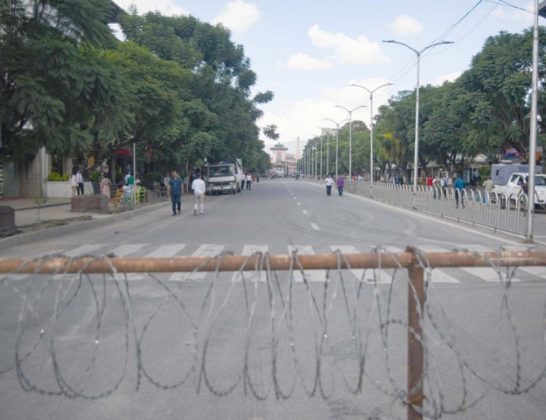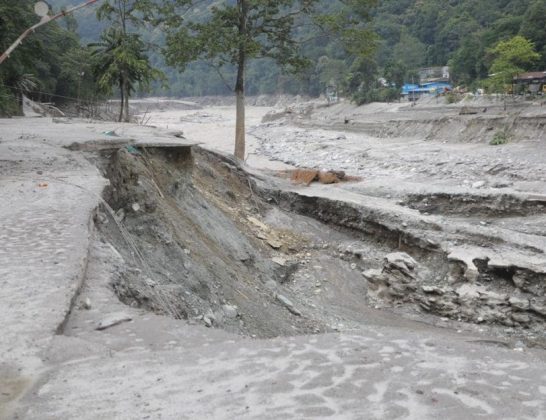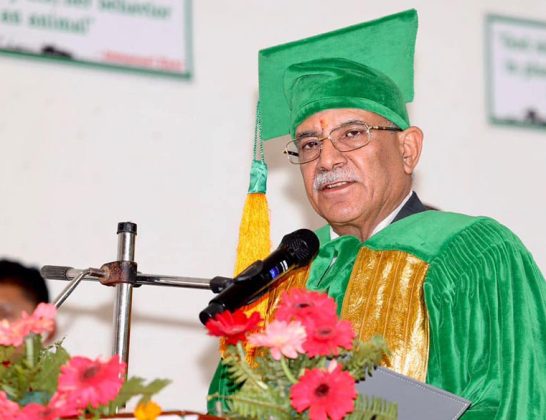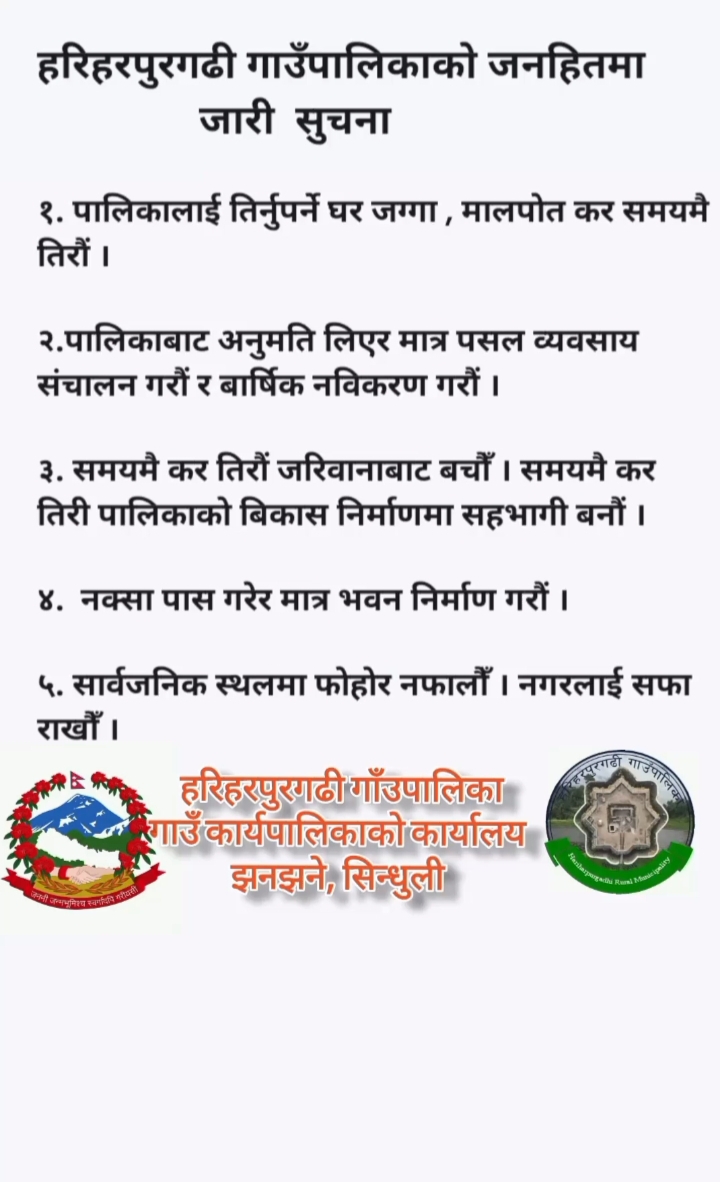Struggle Abroad
Nepali migrant workers find themselves entangled in Poland’s red tape
When Samir Pradhan (name changed) landed in Poland about a year ago, he was over the moon.

He was in Europe.
The high-rise buildings, bustling malls and smooth flow of traffic on the roads were mesmerising. He thought he had come to the right place. He also had a job in a meat-packing factory.
But as the days passed, a harsher reality began to sink in.
“Poland isn’t what you would expect it to be,” said the 35-year-old over the phone. “The money I make here is just enough to buy things I need. It’s difficult to save up and send money home.”
He shares a room in the accommodation that the meat-packing company has provided with four others.
“That’s not comfortable,” said Pradhan.
Stories of low wages, squalid living conditions and exploitation at every step of the way—from recruitment to poor pay—are all too common for Nepali workers in Eastern Europe, as reported by the Post earlier.
Getting wages enough to pay off the money borrowed to pay recruiters back in Nepal and to send money for families is not the only problem Nepali migrants face in this country of 37.8 million known for its harsh winters.
Nepalis pay agents anywhere between Rs500,000 and Rs1.3 million to get to Poland. Often these transactions are carried out informally without receipts issued, making it difficult to prove fraud in case anyone gets duped.
And once they get to the country, it often turns out that the earnings are much lower than promised—for example, PLN (Polish zloty) 2,000 (equivalent to approximately Rs60,000) instead of the same amount in euros (equivalent to approximately Rs 275,800) which Nepali migrant workers had often been told to expect by recruiters back home.
Poland is a relatively new labour destination for Nepalis.
According to the Polish Office for Foreigners, only 95 Nepalis lived in the country with a residence permit in 2007. In 2018, the number reached 1,150 and crossed the 3,000 mark in 2020. But these figures don’t include a sizeable number of Nepalis who come to Poland on non-work visas which can be as long as year-long.
Members of the Nepali community estimate that as many as 5,000 Nepalis live in Poland.
For the Nepali migrant workers, Poland poses an additional challenge—one that turns people like Pradhan into ‘slaves of documents’.
Before Poland issues a visa to foreign workers, they need to get a work permit, meaning that a job has to be waiting for them in the country.
Poland has been issuing work permits to foreigners in large numbers in recent years. The year 2018 saw a 40 percent increase in the number of work permits issued compared to the previous year. In the first half of 2019, it issued 233,000 permits, a 66 percent increment compared to the same period the previous year.
While Ukrainians represent the vast majority of work permit recipients, with 72 percent of the total in 2018, the second highest number of work permits was issued to Nepalis—22,336 in 2018 (6 percent of the total work permits issued that year).
But not all those who have permission to work in Poland get to the country.
Every year a large number of Nepalis are refused visas even if they have been issued their work permits. According to the Polish Ministry of Foreign Affairs, in 2019, around 75 percent of applications of Nepalis were rejected. The most common reasons for refusals are: lack of confirmation of the purpose of the stay, concealment of the truth, forging documents or suspicion that the foreigner will leave the territory of Poland before the expiry of the visa.
According to a report, Shifting Labor Frontiers: The Recruitment of South Asian Migrant Workers to the European Union (2020), “The issuing of work permits is only the beginning of the recruitment process – it does not guarantee that the migrant worker will actually use the work permit issued and occupy the job he or she has been recruited for. The work permit only indicates that the Polish company entrusts the execution of work to a particular worker, as well as the type of work to be performed.”
The study found that even if most employers want to hire workers immediately, it can take up to 18 months before a migrant worker can fill the position s/he has been recruited for. Some of them arrive in Poland with their working permits about to expire—sometimes it turns out when they get to Poland they are not needed anymore.
Then there is another problem workers face once they get to Poland and want to change jobs.
A new job means a new work permit. And this can take months.
“It can’t continue to be like this. We are slaves of documents!” says Mitra Lal Parday, who moved to Poland in 2007 as a student, but gave up his studies to work at a restaurant.
After eight years of working in a restaurant, he started his own business.
“If they tell us to go back, we’ll go back. But they can’t tell us to do that as Poland needs workers,” he adds. “So why can’t they issue permits on time?”
Meanwhile, Pradhan is considering changing his job.
“I don’t know how the system works. They say that we need to wait for months before our permit is renewed and we are allowed to change jobs,” he said.
One of his friends has been visiting the government office concerned for months to renew his permit, without much luck.
Under Polish law, a worker requires the sponsorship of an employer to apply for a work permit. If workers want to change jobs but can’t find a new employer, they have to either work illegally without a permit or return to Nepal.
Polish government offices have their own reasons for the delay in issuing permits.
Some administrative activities are still performed manually: for example, after the application is submitted personally by the foreigner, an official has to enter the content of the document into the system. And, that takes time.
Before the pandemic, the Polish government had decided to digitise the whole system to ensure better flow of information between individual offices and enable online submission of applications.
But digitisation has been slow—information is still exchanged offline between voivodeship (the highest administrative division in Poland equivalent to province in other countries) offices, labour offices and opinion-giving bodies. Besides, a system that would provide immediate and secure access to all data does not yet exist.
A study by the Supreme Audit Office, the top independent state audit authority, which checked in 2019 whether the public administration is prepared for the efficient service to foreigners, stated that “too few officials and insufficient financial resources have a decisive influence on the prolongation of administrative proceedings”.
The study also found that public authorities and individual offices do not provide foreigners with reliable information.
Parday, who has had to visit the Mazowiecki office, the vivodeship in the Warsaw region, several times to renew his permit, says the officials have only one thing to say: “Go online!”
“That’s not the only thing that makes applying for work permits difficult. The list of documents required for the application process is in Polish, which many Nepalis can’t decipher,” he said.
Foreigners, including Nepalis, do not know where to find detailed information about their situations like having overstayed their visas or their work permit expiring and turn to intermediaries—some of whom are frauds.
Although the system of employing foreigners in Poland looks decent on paper, it actually enslaves migrants, because if a person wants to change jobs, it is not so easy, says Cezary Bachański, president of the employment agency Inter-Factor Polska.
As a result, some Nepalis end up working without a permit, although if an offence is found, they may be deported with a ban on entering the country for a specified period of time.
A Nepali migrant worker at one of the many Nepali restaurants in Warsaw wondered if he had a choice.
“I worked ‘black’ for a year myself. Because it took so long with the appeals [for a work permit],” said the Nepali worker, who did not want his identity to be revealed. “Meanwhile, the family has to be sustained.”
According to Bachański, there is no political will to simplify the rules. After all, foreigners can’t vote. And entrepreneurs’ voices are not easily heard despite them being short of workers.
Witold Klaus, professor at the Center for Research on Migration Law of the Institute of Legal Sciences of the Polish Academy of Sciences, also has doubts that laws will be simplified soon.
“On the one hand, we need economic migrants, and on the other hand, we are doing nothing to facilitate their arrival and access to the necessary permits,” he said. “The attitude is: ‘It is probably not that bad if they come here. Let them fight if they want’.”
But back in Nepal, recruiting agencies do not accept that there are issues for Nepali workers once they get to Poland.
“Once the worker has received a work permit, there is no way that they won’t get the job. European countries have better laws for migrant workers than Gulf countries and ensure workers’ freedom of mobility,” said Sujeet Kumar Shrestha, general secretary of Nepal Association of Foreign Employment Agencies (NAFEA), a grouping of recruiting agencies hiring and supplying Nepali workers to foreign employers.
Shrestha even claimed that an employer’s permission is not required to change jobs despite the ground reality in Poland being different.
He said that recruitment agencies would not be in a position to dupe migrant workers.
“As per Nepal’s foreign employment rules, recruiting agencies have to be responsible for anything that a worker faces while working abroad,” he said.
Nepal government officials, on the other hand, say Nepalis are facing issues in emerging labour destinations such as Poland, Croatia, Romania and Malta in Europe because of malpractices during recruitment.
According to Kumar Prasad Dahal, director general at the Department of Foreign Employment, despite the growing demand for workers in those countries, aspirant workers have to make their own arrangements to get to countries like Poland as there are no Nepali missions as in the case of Malaysia and Gulf countries to attest demand.
And the recruitment agencies, without enough information, are duping Nepali migrants, he said.
“Companies in Poland, recruiting agencies in Nepal and individual agents hardly have any connections between them,” Dahal said. “Nepali recruiting agencies can not reach out to Polish employers, except some email communication. Even artificial demands are created for supplying workers to fake companies through individual contacts. For such jobs, workers are charged a hefty amount but when they reach there are no such companies.”
The solution is a formal deal between Nepal and countries like Poland, officials and experts say.
“Once we have a formal deal, for which many European countries are eager too, and Nepali missions in those countries, we can eliminate recruitment malpractices through verification of demands,” said Dahal. “We can capture the growing demand for Nepali workers and also solve any issues faced by them through formal negotiations.”
It was in 2018 that a task force suggested some kind of formal agreement with Poland as one of the new labour destinations.
The government had also started some negotiations for signing such deals with some European countries, but not much has happened.
“Nepali workers have been investing nearly Rs1 million to pursue their European dreams. But the dreams don’t always materialise,” said Rameshwar Nepal, a member of the 2018 task force. “If a Nepali mission was there then at least their hassles could be resolved quickly.”
“Besides, a deal with one country can have a multiplier effect like better protection for Nepali migrants workers and their rights and also tapping the demand coming from European countries like Poland, which is an attractive labour destination comparatively.”










Comments